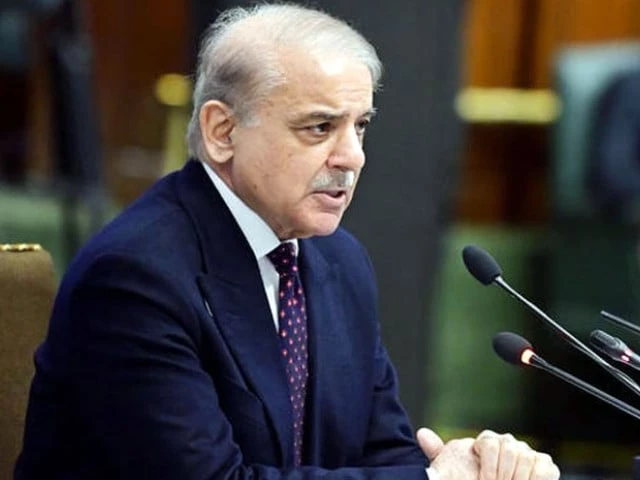Islamabad:
A week after announcing to hire federal secretaries of economic ministries of the private sector, Prime Minister Shehbaz Sharif was on Friday a committee to thoroughly examine the induction of sector experts at more appropriate levels of civil service.
The Ministerial Committee includes the Minister of Climate Change, Dr. Musaddiq Malik, the Minister of Power Sardar Awais Laghari, Commerce Secretary Jawad Paul and FBR Rashid Langial President. He has in charge of deliberating the proposal thoroughly.
The committee’s findings will also be aligned with the work of two other committees led by the Minister of Finance, Muhammad Aurengzeb, and the Minister of Planning Ahsan Iqbal.
The measure occurs only six days after the Government published an advertisement of media that seeks private sector professionals for the main civil service roles, which caused concern among some federal ministers and bureaucrats about the potential impact on institutional governance and integrity.
Prime Minister Shehbaz ordered the formation of a committee to finish the processable proposals for the restructuring of other ministries and institutions, considering the reforms in the Ministry of Energy, according to a statement issued by the Prime Minister’s office.
“The Committee will also focus on recruiting the best workforce, aligning ministries with modern systems and improving governance through reforms,” said Prime Minister’s office.
The sources said that during the meeting on issues of the electricity sector, some of the participants expressed serious concerns about the impact of the decision on the hiring of main accounting officers and other technical experts in the open market.
There was a strong opinion at the meeting that the federal secretary’s office cannot be replaced by private persons who have a limited liability or no responsibility for their decisions. One of the arguments was that foreign investment has not been hindered by the secretaries, but that the reasons were different. It is said that the lack of holiness of contracts is one of those reasons that discourage foreign investment.
The participants did not have a problem with the induction of people against the higher degree positions, but there were concerns about the entry level, whether they should be made of federal secretaries or that the inductions should be grade 20 or 21, the sources said.
The Federal Minister of Economic Affairs and Establishment, Ahad Khan Chema, said there were no changes in the previous decision, that it was to establish a group of capable and experienced people.
The Government has issued advertisements during the weekend to hire seven individuals from the private sector “dynamic” for federal secretaries positions.
However, the announcement did not appoint the divisions, qualification criteria and work descriptions. He has invited to requests for “dynamic and experienced professionals for the role of the main accounting officers (PAO), technical advisors, head of organizations in key economic areas,” says the announcement. There is a two -week deadline for submitting applications.
The announcement, published on the website of the establishment division, did not appoint the divisions, qualification criteria and work descriptions. However, he suggested that the government is ready to hire seven federal secretaries of the private sector to administer ministries related to the economy.
These are the Finance Division, the Petroleum Division, the Energy Division, the Division of Planning, the Industries and the Production Division, the National Food Safety Division and Education and Vocational Training. These divisions are currently headed by officers of the Almighty Administrative Service of Pakistan (PAS).
A federal minister objected that his secretary’s position is announced without first consulting it.
Pakistan’s economic ministries are mainly directed by PA officers and there have been criticism that many of them do not have the necessary experience to understand the complexity of economic issues.
The prime minister said that the transformation of the obsolete system into a model of modern, digital and effective governance was among the government’s priorities, since economic development and prosperity were impossible without modernizing the system to meet contemporary demands.
The prime minister ordered reforms to improve the performance of the ministries and hire expert services in each sector. The prime minister said that the country could not achieve progress with the system that has been in force for seven decades.
The participants of the meeting argued that, instead of attracting federal secretaries, the capacity must be built through technical induction by contract or at the lateral entrance of the average level in the civil service.
Direct induction as the main accounting officer has not been proven largely without the exposure of public sector management and political and parliamentary supervisions that leave the induction of the secretary’s information technology.
According to some bureaucrats, the main private sector professionals in this high -risk environment will not join current management scales and special payment scales. They argued that existing things on the salary scale of management are not of high quality.
Young officers of the provinces are also reluctant to work in the federal government due to a better service structure in the provinces.
The Federal Government had behind a couple of years of executive allocation of 140% to the bureaucrats on the argument that the provinces officers were not ready to work in the center because the federal units offered better payment packages.




